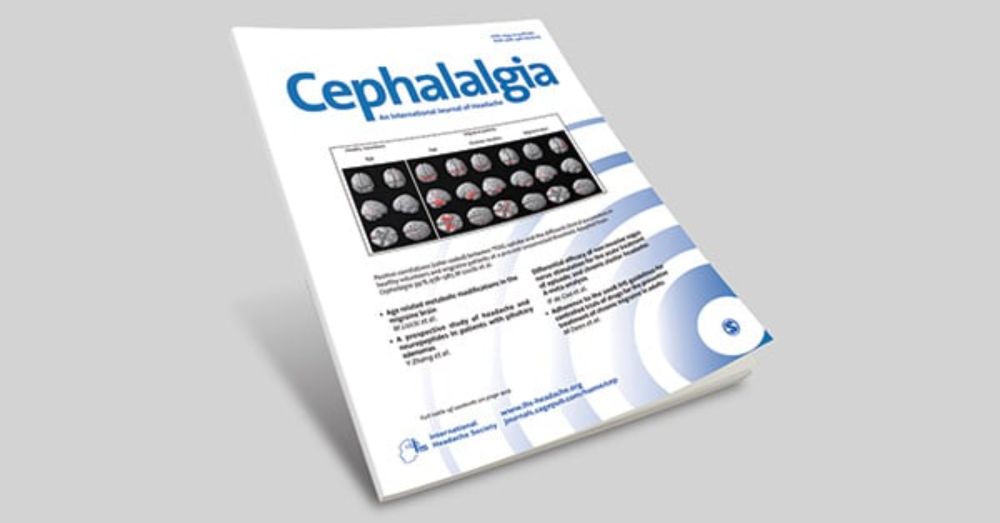
Mollie Wood
@anecdatally.bsky.social
Asst. prof of epidemiology at UNC Chapel Hill
| training at HSPH, UiO, UMass Med, BUSPH | interests in rxepi, repro-perinatal epi, methods | she/her/dr
| training at HSPH, UiO, UMass Med, BUSPH | interests in rxepi, repro-perinatal epi, methods | she/her/dr
Not to mention "The journal is affiliated with the North American Fuzzy Information Processing Society (NAFIPS)" !!
November 5, 2025 at 3:48 PM
Not to mention "The journal is affiliated with the North American Fuzzy Information Processing Society (NAFIPS)" !!
As a post script, I also want to say that I find the “medically necessary” language around APAP use ridiculous and insulting. Do they think pregnant women are taking acetaminophen for fun? Or mistaking the pills for candy?
September 23, 2025 at 9:18 AM
As a post script, I also want to say that I find the “medically necessary” language around APAP use ridiculous and insulting. Do they think pregnant women are taking acetaminophen for fun? Or mistaking the pills for candy?
PPE 2019 study: onlinelibrary.wiley.com/doi/full/10.1111/ppe.12568

Prenatal paracetamol exposure and neurodevelopmental outcomes in preschool‐aged children
Background Recent studies have suggested an association between prenatal paracetamol exposure and adverse neurodevelopmental outcomes in children. However, these findings may be confounded by unmeas...
onlinelibrary.wiley.com
September 23, 2025 at 9:16 AM
PPE 2019 study: onlinelibrary.wiley.com/doi/full/10.1111/ppe.12568
IJE 2015 study: academic.oup.com/ije/article/...

Neurodevelopmental problems at 18 months among children exposed to paracetamol in utero: a propensity score matched cohort study
Abstract. Background: Previous studies showed that children exposed to paracetamol during fetal life might have an increased risk of neurodevelopmental pro
academic.oup.com
September 23, 2025 at 9:16 AM
IJE 2015 study: academic.oup.com/ije/article/...
You wouldn’t know it from this thread, but other people have opinions about APAP in pregnancy and neurodevelopmental outcomes. @perdamkier.bsky.social in particular has written a lot about the topic, including this piece: onlinelibrary.wiley.com/doi/10.1111/...

Annotations and Reflections
Click on the article title to read more.
onlinelibrary.wiley.com
September 23, 2025 at 9:16 AM
You wouldn’t know it from this thread, but other people have opinions about APAP in pregnancy and neurodevelopmental outcomes. @perdamkier.bsky.social in particular has written a lot about the topic, including this piece: onlinelibrary.wiley.com/doi/10.1111/...
...for specific conditions during pregnancy. Active comparator designs would strengthen these types of studies significantly, particularly for conditions where “no treatment” is not a realistic or ethical recommendation.
September 23, 2025 at 9:16 AM
...for specific conditions during pregnancy. Active comparator designs would strengthen these types of studies significantly, particularly for conditions where “no treatment” is not a realistic or ethical recommendation.
People taking high doses of APAP for long periods of time aren’t irresponsible, they’re desperate. Most frustratingly, APAP isn’t a particularly good drug for chronic pain conditions. All of which is to say: I think research needs to focus more on comparing clinically meaningful treatments...
September 23, 2025 at 9:16 AM
People taking high doses of APAP for long periods of time aren’t irresponsible, they’re desperate. Most frustratingly, APAP isn’t a particularly good drug for chronic pain conditions. All of which is to say: I think research needs to focus more on comparing clinically meaningful treatments...
And in this small study done in a single hospital in Norway, we saw many women switching from previous migraine treatments to APAP, and reporting high levels of pain not managed by APAP: bmcpregnancychildbirth.biomedcentral.com/articles/10....

Patterns and predictors of analgesic use in pregnancy: a longitudinal drug utilization study with special focus on women with migraine - BMC Pregnancy and Childbirth
Background Few studies have investigated the drug utilization patterns and factors predicting drug use in pregnant women with migraine. This longitudinal drug utilization study aimed to describe patte...
bmcpregnancychildbirth.biomedcentral.com
September 23, 2025 at 9:16 AM
And in this small study done in a single hospital in Norway, we saw many women switching from previous migraine treatments to APAP, and reporting high levels of pain not managed by APAP: bmcpregnancychildbirth.biomedcentral.com/articles/10....
But it is critical to understand what is driving high-dose, long-duration APAP use in pregnancy. In this descriptive study of migraine in pregnancy, we saw decreasing use of other drugs and increases in APAP: journals.sagepub.com/doi/10.1177/...

Polypharmacy and comorbidities during pregnancy in a cohort of women with migraine - Mollie E Wood, Rebecca C Burch, Sonia Hernandez-Diaz, 2021
Objective To describe longitudinal patterns of medication use throughout pregnancy in women with migraine. Methods We used the IBM MarketScan healthcare claims...
journals.sagepub.com
September 23, 2025 at 9:16 AM
But it is critical to understand what is driving high-dose, long-duration APAP use in pregnancy. In this descriptive study of migraine in pregnancy, we saw decreasing use of other drugs and increases in APAP: journals.sagepub.com/doi/10.1177/...
My pet hypothesis, for which I only have indirect evidence, is something like this: I think it is possible that very high doses of APAP over extended periods of time (i.e., 500+mg daily for multiple weeks) could cause neurodevelopmental differences in exposed fetuses.
September 23, 2025 at 9:16 AM
My pet hypothesis, for which I only have indirect evidence, is something like this: I think it is possible that very high doses of APAP over extended periods of time (i.e., 500+mg daily for multiple weeks) could cause neurodevelopmental differences in exposed fetuses.
Why is acetaminophen so hard to study? Reason 4: dose, duration, and timing of use are likely important, which amplifies the measurement problem (Reason 1), makes the confounding problem worse (Reason 2), and is further hampered by the selection problem (Reason 3).
September 23, 2025 at 9:16 AM
Why is acetaminophen so hard to study? Reason 4: dose, duration, and timing of use are likely important, which amplifies the measurement problem (Reason 1), makes the confounding problem worse (Reason 2), and is further hampered by the selection problem (Reason 3).
...how do we think about the counterfactual here? The children with prenatal APAP exposure might not have been born, had their parent not used APAP.
September 23, 2025 at 9:16 AM
...how do we think about the counterfactual here? The children with prenatal APAP exposure might not have been born, had their parent not used APAP.
Why is acetaminophen so hard to study? Reason 3: studies of neurodevelopment almost always condition on a live birth. But untreated fever in early pregnancy can lead to miscarriage, so...
September 23, 2025 at 9:16 AM
Why is acetaminophen so hard to study? Reason 3: studies of neurodevelopment almost always condition on a live birth. But untreated fever in early pregnancy can lead to miscarriage, so...
...much of the use for pain conditions is among people who were managed on a different (more effective) drug before pregnancy and then switched when they became pregnant.
September 23, 2025 at 9:16 AM
...much of the use for pain conditions is among people who were managed on a different (more effective) drug before pregnancy and then switched when they became pregnant.
Why is acetaminophen so hard to study? Reason 2: there is a huge range of reasons for using APAP, all of which have different relationships with neurodevelopment. People take APAP for pain and fever, yes, but...
September 23, 2025 at 9:16 AM
Why is acetaminophen so hard to study? Reason 2: there is a huge range of reasons for using APAP, all of which have different relationships with neurodevelopment. People take APAP for pain and fever, yes, but...
Some studies have used biomarkers (urine, meconium), but APAP is metabolized quickly so these measures are only a snapshot for specific time windows.
September 23, 2025 at 9:16 AM
Some studies have used biomarkers (urine, meconium), but APAP is metabolized quickly so these measures are only a snapshot for specific time windows.
Why is acetaminophen so hard to study? Reason 1: it’s hard to measure. Acetaminophen (APAP) is available over the counter and by prescription, alone or in combination with other medications. Studies often rely on parental recall, which varies in accuracy, or prescription fills, which miss OTC use.
September 23, 2025 at 9:16 AM
Why is acetaminophen so hard to study? Reason 1: it’s hard to measure. Acetaminophen (APAP) is available over the counter and by prescription, alone or in combination with other medications. Studies often rely on parental recall, which varies in accuracy, or prescription fills, which miss OTC use.
I’ve also written a commentary about some of the challenges (posted here by @dremilyrsmith.bsky.social ) bsky.app/profile/drem...
For you epi nerds inspired to brush up on analytical challenges in perinatal pharmacoepidemiology, here is a nice piece from @anecdatally.bsky.social!
Associations between prenatal acetaminophen exposure & child neurodevelopment: Truth, bias, or a bit of both? pmc.ncbi.nlm.nih.gov/articles/PMC...
Associations between prenatal acetaminophen exposure & child neurodevelopment: Truth, bias, or a bit of both? pmc.ncbi.nlm.nih.gov/articles/PMC...

Associations between prenatal acetaminophen exposure and child neurodevelopment: Truth, bias, or a bit of both?
pmc.ncbi.nlm.nih.gov
September 23, 2025 at 9:16 AM
I’ve also written a commentary about some of the challenges (posted here by @dremilyrsmith.bsky.social ) bsky.app/profile/drem...
I’ve published 2 papers on acetaminophen in pregnancy and neurodevelopmental outcomes, both as methods supervisor for a doctoral student who was the first author, from the MoBa study. I’ll drop the links at the end of the thread- both are open access either via PMC or the journal website.
September 23, 2025 at 9:16 AM
I’ve published 2 papers on acetaminophen in pregnancy and neurodevelopmental outcomes, both as methods supervisor for a doctoral student who was the first author, from the MoBa study. I’ll drop the links at the end of the thread- both are open access either via PMC or the journal website.

